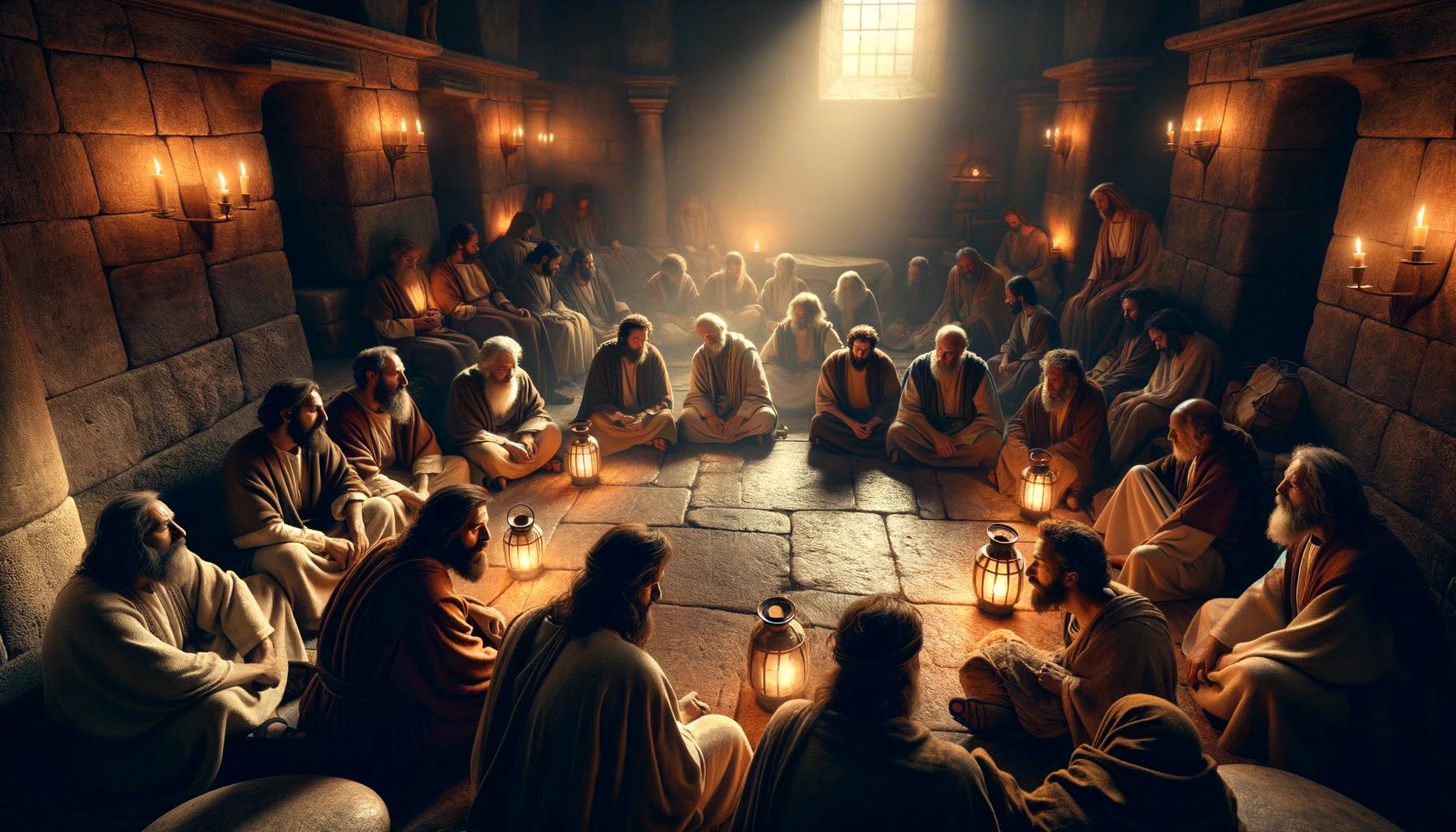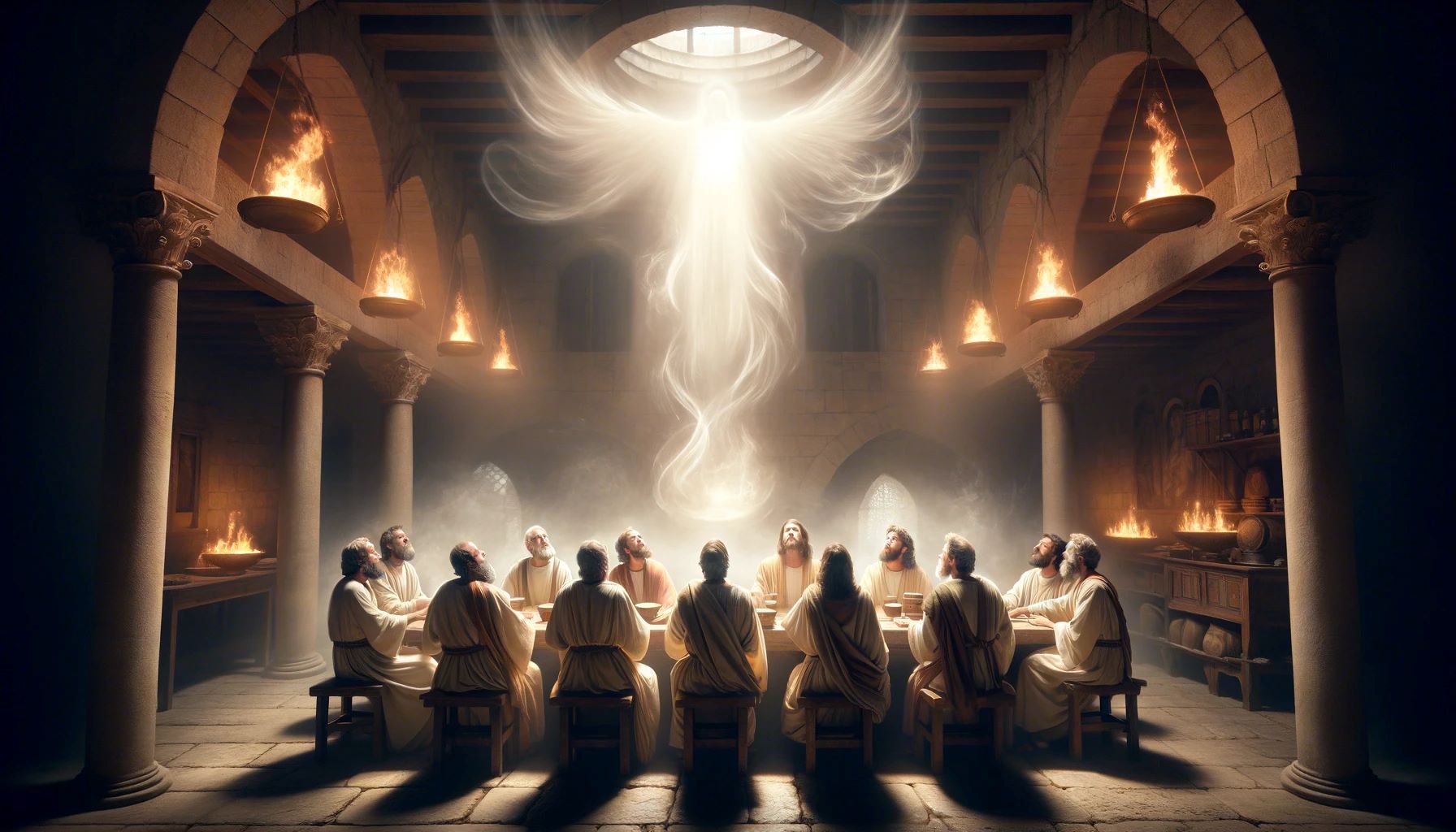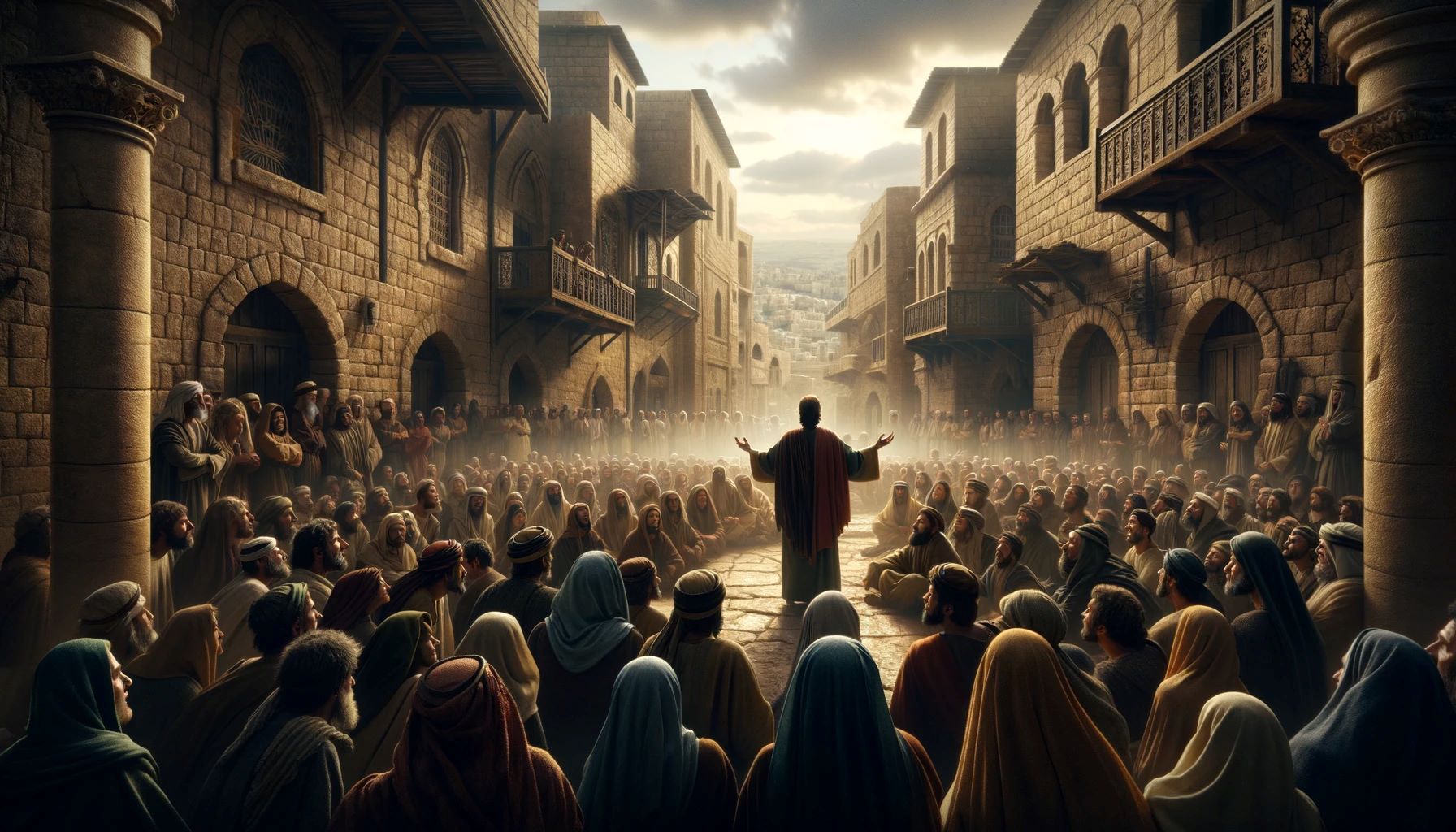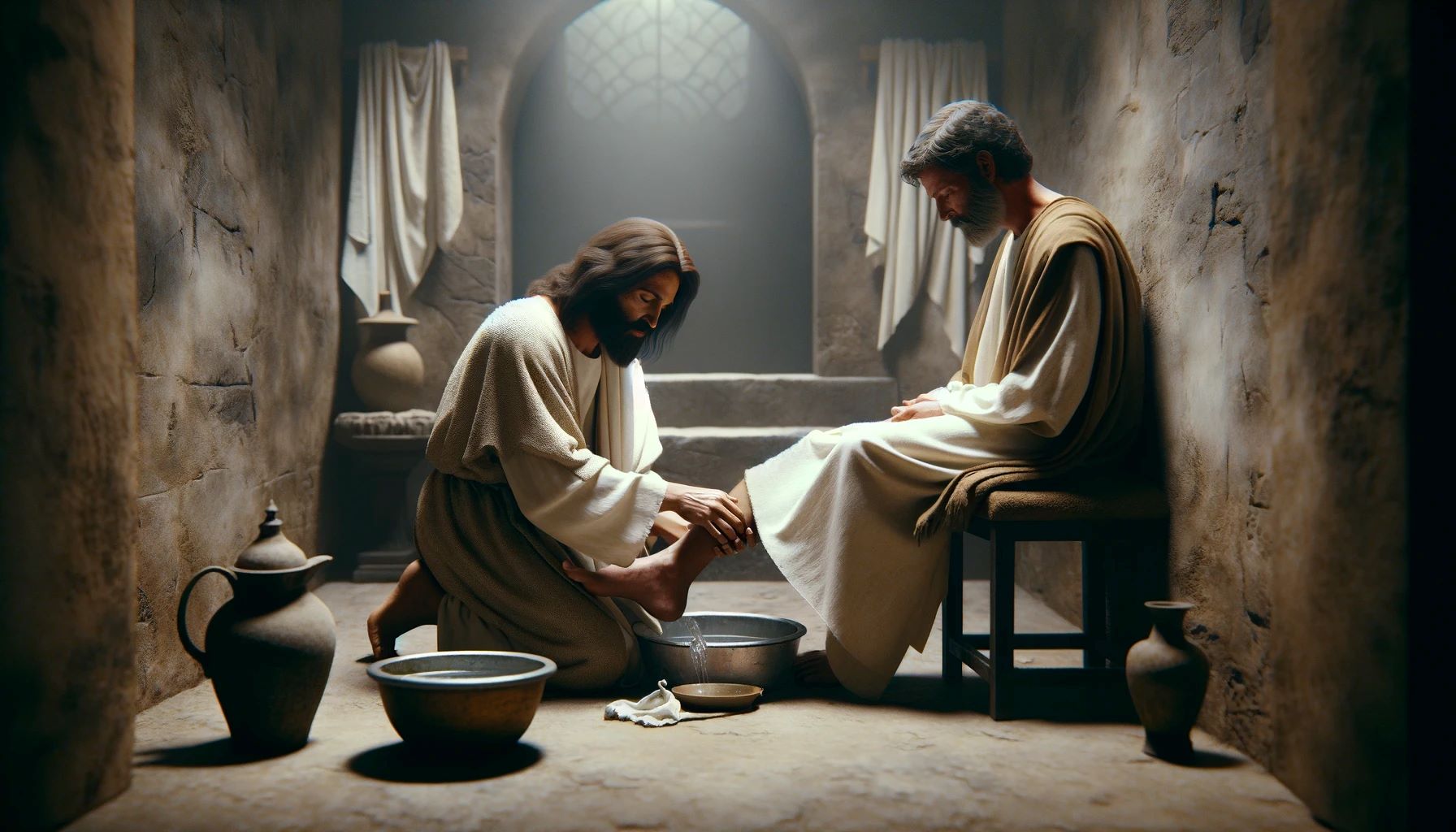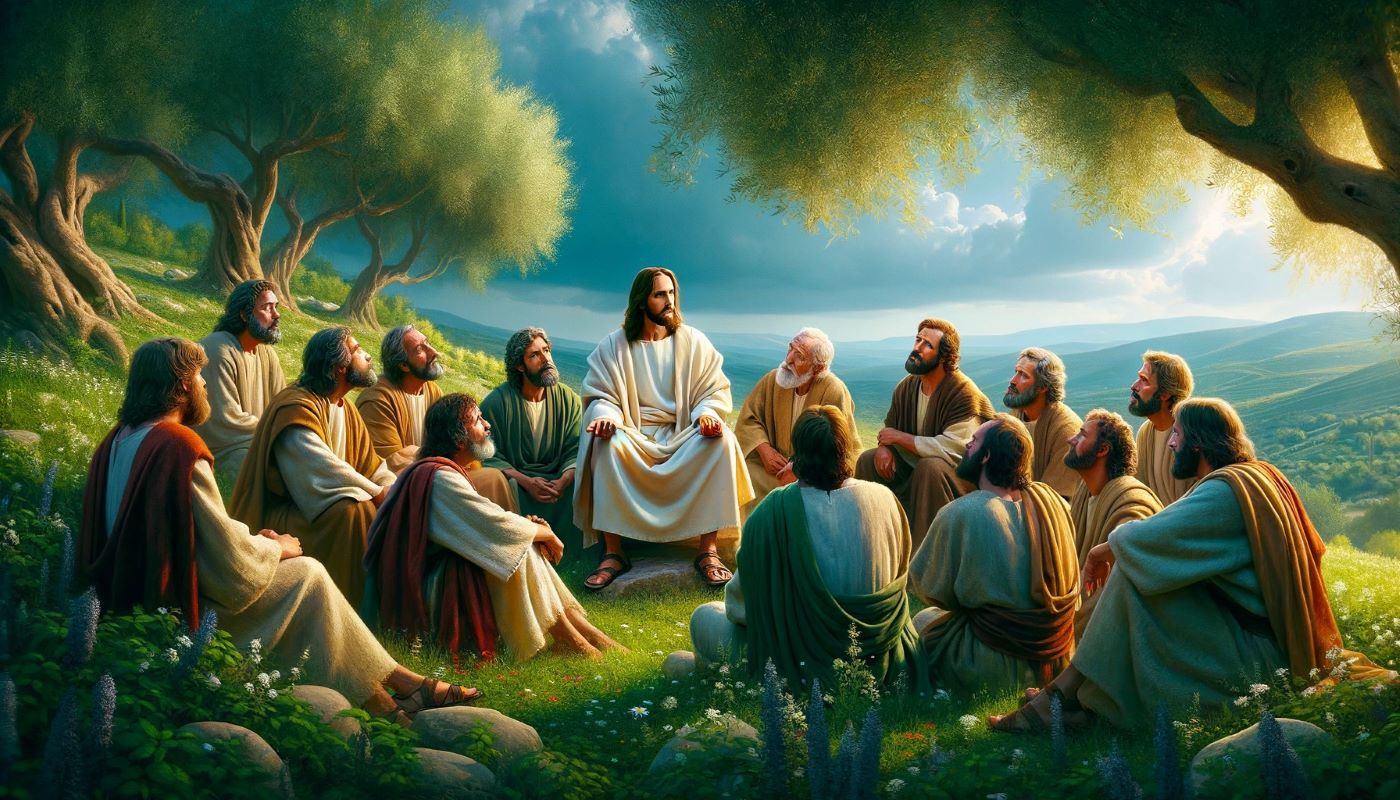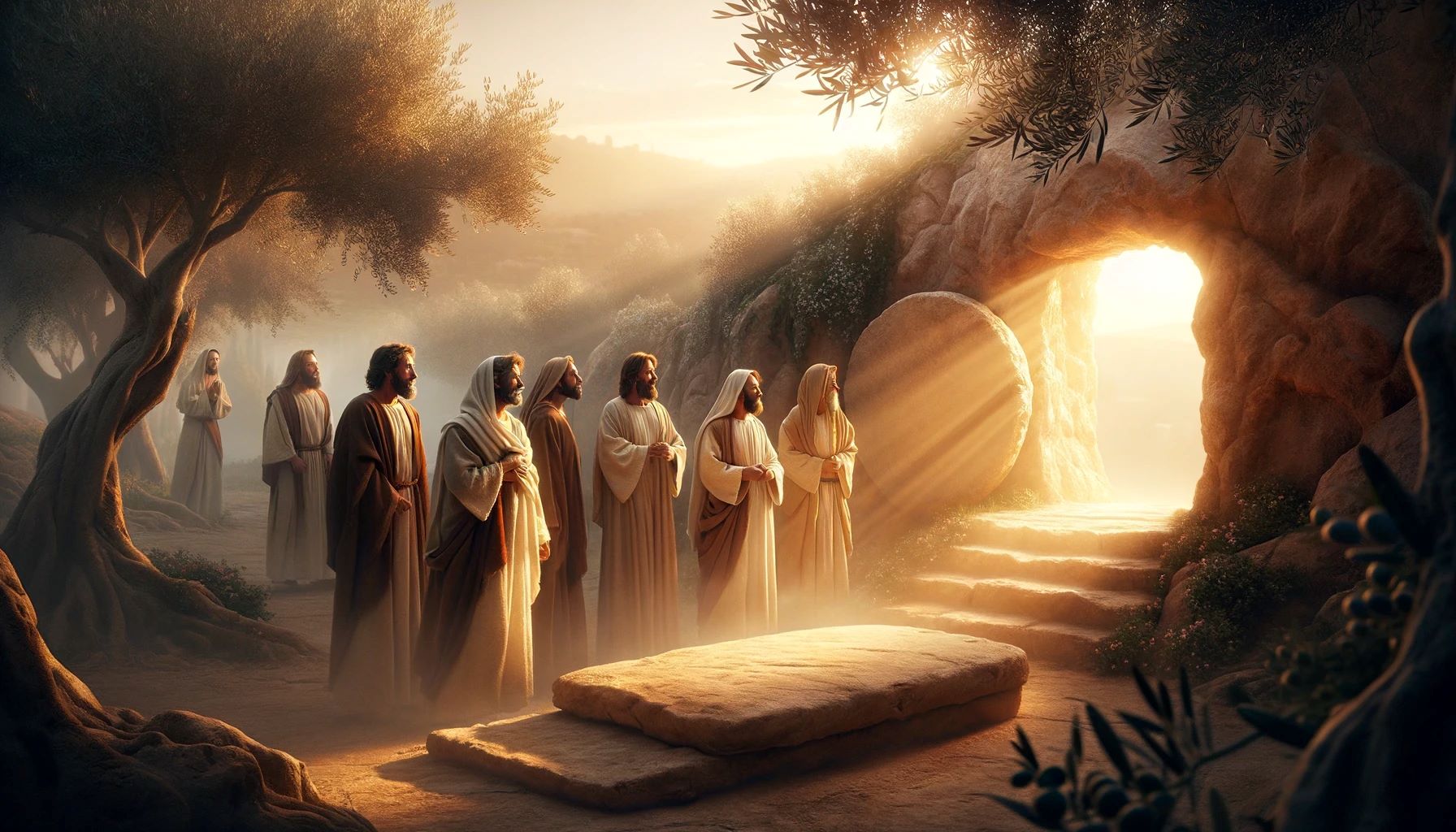Home>Bible Facts>When Did Jesus Appear To The Apostles


Bible Facts
When Did Jesus Appear To The Apostles
Published: February 23, 2024
Jason DeRose, Managing Editor at Christian.net, uses his expertise in religion and journalism to deepen understanding of faith's societal impacts. His editorial leadership, coupled with a strong academic background, enriches the platform’s diverse content, earning him recognition in both journalism and religious circles.
Discover when Jesus appeared to the apostles and explore fascinating Bible facts about this significant event. Uncover the truth and deepen your understanding of biblical history.
(Many of the links in this article redirect to a specific reviewed product. Your purchase of these products through affiliate links helps to generate commission for Christian.net, at no extra cost. Learn more)
Table of Contents
Introduction
The appearances of Jesus to the apostles after his resurrection are pivotal events in the New Testament, carrying profound significance for the early Christian community and serving as a testament to the reality of Jesus' resurrection. These appearances not only brought comfort and reassurance to the apostles but also solidified their faith and prepared them for their mission to spread the teachings of Jesus to the world.
The post-resurrection appearances of Jesus to the apostles are documented in the Gospels of Matthew, Mark, Luke, and John, each providing unique perspectives and details about these extraordinary encounters. These appearances occurred at various locations and under diverse circumstances, each contributing to the apostles' understanding of Jesus' resurrection and their role in the establishment of the early Christian church.
As we delve into the accounts of these appearances, it becomes evident that they were not merely isolated events but rather integral components of a larger narrative that unfolded over a period of time. Each appearance carried specific messages, bestowed unique commissions, and provided the apostles with the spiritual fortitude necessary to carry out their divine mandate.
The post-resurrection appearances of Jesus to the apostles serve as a testament to the continuity of Jesus' presence and guidance in the lives of his followers. They also underscore the transformative power of encountering the risen Christ, as evidenced by the profound impact these encounters had on the apostles' faith, conviction, and sense of purpose.
In the subsequent sections, we will explore the details of these appearances, shedding light on the circumstances, the messages conveyed, and the profound implications they held for the apostles and the burgeoning Christian community. Through this exploration, we aim to gain a deeper understanding of the significance of these appearances and the enduring relevance of their messages for believers today.
Read more: When Did Jesus Disciples Become Apostles
The Appearance to the Apostles in the Upper Room
Following the resurrection of Jesus, the apostles gathered in an upper room in Jerusalem, their hearts heavy with the recent events and the uncertainty of the future. Suddenly, Jesus appeared among them, despite the locked doors, offering them peace and reassurance. This profound encounter, chronicled in the Gospel of Luke and the Gospel of John, stands as a testament to the transformative power of Jesus' resurrection and the enduring nature of his presence.
In this intimate setting, Jesus addressed the apostles, acknowledging their doubts and fears while imparting a profound sense of peace. He showed them his hands and side, bearing the marks of the crucifixion, affirming his identity and dispelling any lingering disbelief. This tangible display of his wounds served as a poignant reminder of the redemptive sacrifice he had made for humanity.
Moreover, Jesus bestowed upon the apostles the authority to continue his work, breathing the Holy Spirit upon them and commissioning them to carry forth the message of forgiveness and reconciliation. This act symbolized the empowerment of the apostles for their future ministry, equipping them with the divine guidance and strength necessary to fulfill their mission.
The appearance in the upper room served as a catalyst for the apostles' transformation, dispelling their doubts and instilling within them a resolute faith in the reality of Jesus' resurrection. It also marked the inception of their role as heralds of the gospel, igniting a fervent zeal to share the message of salvation with the world.
This extraordinary encounter in the upper room not only solidified the apostles' belief in the resurrection but also laid the foundation for the establishment of the early Christian church. The impact of this appearance reverberated throughout the apostolic community, inspiring unwavering devotion and a steadfast commitment to fulfilling the Great Commission.
The appearance to the apostles in the upper room stands as a poignant reminder of the enduring significance of Jesus' resurrection and its transformative influence on the lives of his followers. It serves as a testament to the abiding presence of Christ and the empowerment bestowed upon believers to continue his redemptive work in the world.
The Appearance to the Apostles by the Sea of Tiberias
After the resurrection, the apostles were grappling with the profound implications of Jesus' return and the commission they had received. In the midst of this uncertainty, an extraordinary encounter unfolded by the Sea of Tiberias, also known as the Sea of Galilee, as chronicled in the Gospel of John.
The apostles, seasoned fishermen, found themselves once again on familiar waters, engaging in the timeless trade that had defined their livelihood before their encounter with Jesus. However, their efforts proved futile as they toiled through the night without a catch. At daybreak, a figure stood on the shore, calling out to them with a simple yet profound directive to cast their nets on the right side of the boat. In a remarkable display of faith and obedience, they followed the instruction, resulting in an overwhelming abundance of fish.
As the apostles processed this miraculous catch, the identity of the figure on the shore became unmistakable – it was Jesus, the risen Lord. In a poignant display of his care and provision, Jesus had prepared a meal for them, inviting them to partake in a communal breakfast. This intimate gathering by the sea underscored the continuity of Jesus' presence in their lives and the enduring nature of his relationship with them.
During this encounter, Jesus engaged in a profound conversation with Peter, the impulsive yet devoted apostle who had previously denied him. Through a series of poignant inquiries, Jesus reaffirmed Peter's love and commitment, commissioning him to tend and feed his sheep, symbolizing his role in shepherding and nurturing the burgeoning Christian community.
The appearance to the apostles by the Sea of Tiberias served as a powerful reaffirmation of Jesus' ongoing guidance and provision for his followers. It also carried a profound message of restoration and reconciliation, particularly in the exchange between Jesus and Peter, underscoring the transformative power of grace and forgiveness.
This extraordinary encounter by the sea not only reinforced the reality of Jesus' resurrection but also reaffirmed the apostles' calling and commission to continue the work that Jesus had begun. It served as a poignant reminder of the abiding presence of Christ in the lives of his followers and the enduring relevance of his teachings in guiding their mission and ministry.
The appearance to the apostles by the Sea of Tiberias stands as a testament to the profound impact of encountering the risen Christ and the transformative influence it holds for believers, inspiring unwavering devotion and a steadfast commitment to fulfilling the divine mandate.
The Appearance to the Apostles on the Mount of Olives
Following the resurrection of Jesus, the Mount of Olives became the setting for a profoundly significant encounter between the risen Christ and his apostles. This momentous event, chronicled in the Gospel of Matthew and the Book of Acts, unfolded against the backdrop of this sacred location, carrying profound implications for the apostles and the burgeoning Christian community.
As the apostles gathered on the Mount of Olives, their hearts were undoubtedly filled with a complex array of emotions – awe, anticipation, and perhaps lingering traces of uncertainty. Suddenly, Jesus appeared among them, his presence serving as a tangible affirmation of his resurrection and the enduring nature of his divine mission. This extraordinary encounter on the Mount of Olives underscored the continuity of Jesus' ministry and his unwavering commitment to guiding and empowering his followers.
During this poignant gathering, Jesus imparted to the apostles a pivotal commission known as the Great Commission, charging them with the momentous task of spreading the gospel to all nations. This divine mandate represented a transformative shift in their mission, expanding the scope of their ministry beyond the confines of their immediate surroundings to encompass the entirety of the known world. It signified the universal relevance of the gospel message and the inclusive nature of Jesus' redemptive work, transcending cultural, geographical, and societal boundaries.
Moreover, as the apostles beheld the risen Christ on the Mount of Olives, they were witnesses to his ascension into heaven, a moment of profound significance that marked the culmination of his earthly ministry. This awe-inspiring event served as a poignant affirmation of Jesus' divine nature and his exalted position as the Son of God. It also carried profound implications for the apostles, signifying the transition to a new phase in their journey as torchbearers of the gospel and heralds of the transformative message of salvation.
The appearance to the apostles on the Mount of Olives stands as a testament to the enduring significance of Jesus' resurrection and the profound impact of his ongoing presence in the lives of his followers. It served as a catalyst for the apostles' unwavering commitment to fulfilling their divine mandate, emboldening them to carry forth the message of hope, redemption, and reconciliation to the farthest reaches of the earth.
This extraordinary encounter on the Mount of Olives not only solidified the apostles' belief in the resurrection but also ignited a fervent zeal to share the transformative message of the gospel with the world. It stands as a poignant reminder of the abiding presence of Christ and the enduring relevance of his teachings in guiding the mission and ministry of his followers throughout the ages.
Conclusion
The post-resurrection appearances of Jesus to the apostles stand as profound testaments to the enduring significance of his resurrection and the transformative impact it had on the early Christian community. These extraordinary encounters, occurring in diverse settings and under varying circumstances, served as pivotal moments that solidified the apostles' faith, equipped them for their divine mission, and laid the foundation for the establishment of the early Christian church.
Through the appearance in the upper room, Jesus dispelled the apostles' doubts and fears, imparting a profound sense of peace and empowerment. His tangible display of the wounds from the crucifixion served as a poignant reminder of his redemptive sacrifice and affirmed the reality of his resurrection. The bestowal of the Holy Spirit and the commission to continue his work ignited a fervent zeal within the apostles, propelling them to embark on their mission with unwavering conviction.
The encounter by the Sea of Tiberias underscored the continuity of Jesus' provision and guidance for his followers. The miraculous catch of fish served as a tangible demonstration of his care and provision, while the poignant exchange between Jesus and Peter symbolized the transformative power of grace and restoration. This encounter reaffirmed the apostles' calling and commission, inspiring them to embrace their role as shepherds of the burgeoning Christian community.
The appearance on the Mount of Olives marked a pivotal moment of transition and empowerment for the apostles. The bestowal of the Great Commission expanded the scope of their mission, emphasizing the universal relevance of the gospel message and the inclusive nature of Jesus' redemptive work. Witnessing Jesus' ascension into heaven affirmed his divine nature and exalted position, emboldening the apostles to carry forth the message of hope and redemption to the farthest reaches of the earth.
In conclusion, the post-resurrection appearances of Jesus to the apostles served as catalysts for the transformation of the early Christian community, igniting a fervent zeal to share the transformative message of the gospel with the world. These encounters not only solidified the apostles' belief in the resurrection but also equipped them with the spiritual fortitude and divine guidance necessary to fulfill their mission. The enduring relevance of these appearances resonates throughout the ages, serving as a poignant reminder of the abiding presence of Christ and the transformative power of encountering the risen Lord.
